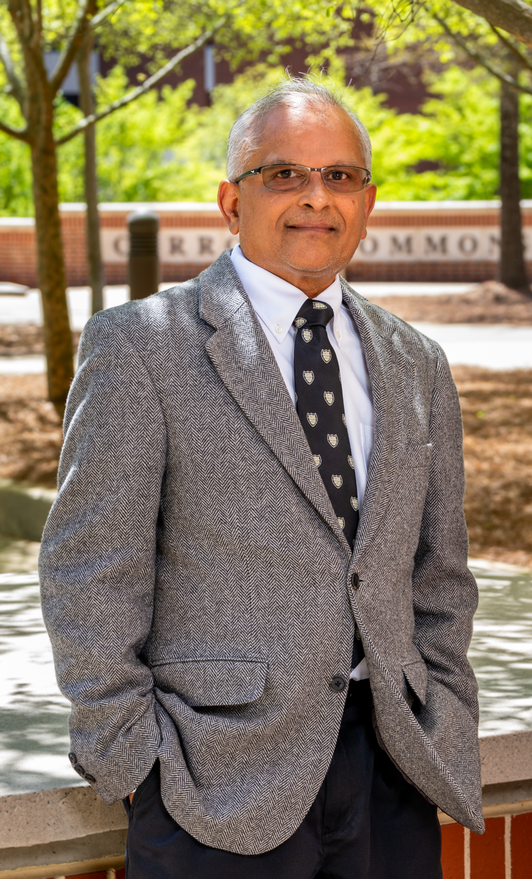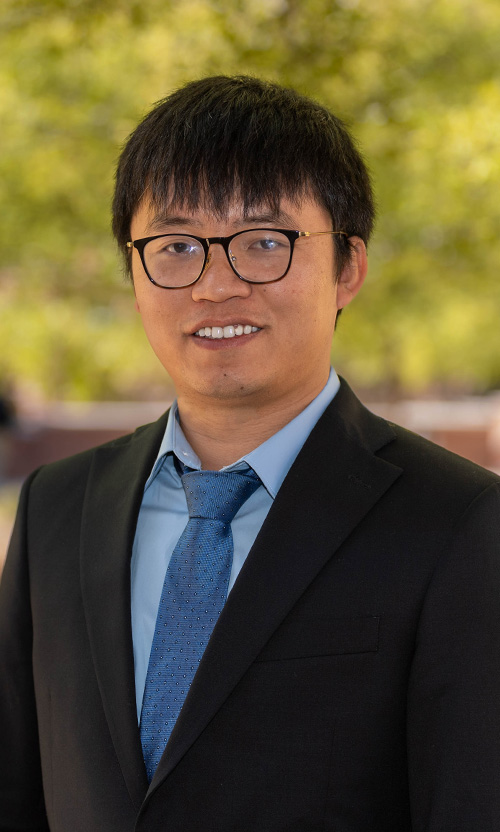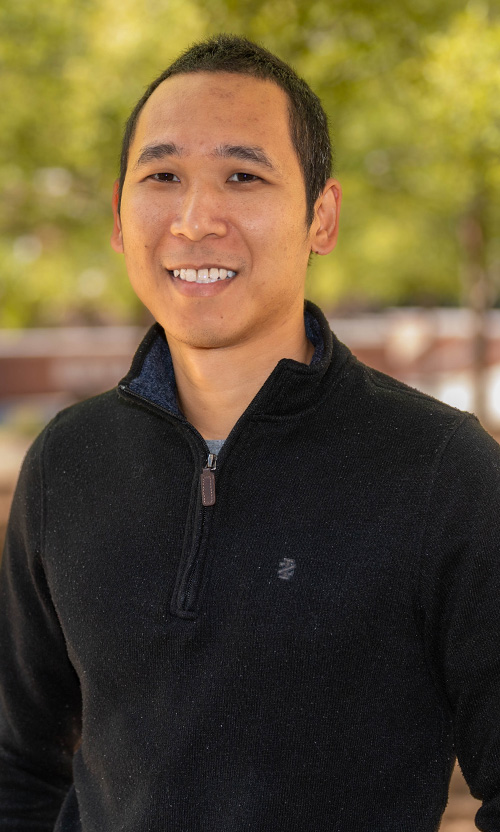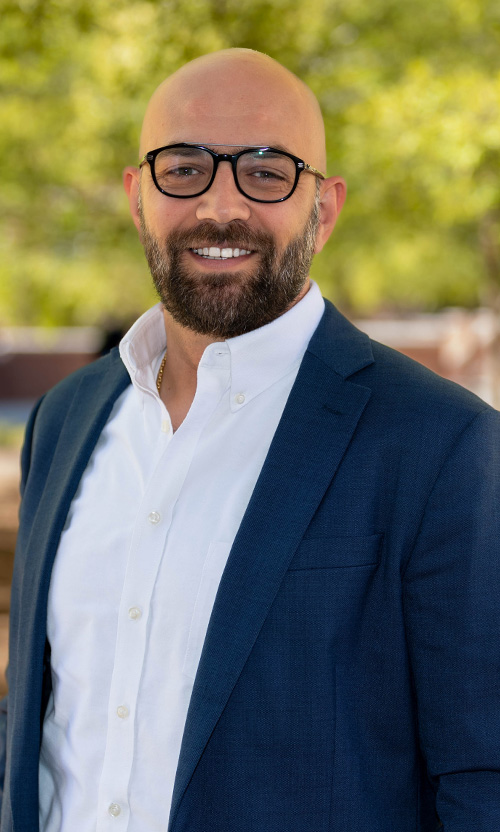Three students in CSSE earn Computing Research Association Outstanding Researcher Awards
Published: Feb 4, 2025 4:05 PM
By Joe McAdory
Three students in the Department of Computer Science and Software Engineering (CSSE) — Owen Strength, Logan Bolton and Luke Robinson — were recently recognized by the Computing Research Association (CRA), earning 2024-25 Outstanding Undergraduate Researcher Award honorable mentions.
The CRA Outstanding Undergraduate Researcher Awards program recognizes undergraduate students in North American colleges and universities who show outstanding potential in an area of computing research.
“We are incredibly proud to celebrate the outstanding achievements of our students,” said the John H. and Gail Watson Professor and CSSE Chair Hari Narayanan. “Their dedication, innovative research and commitment to excellence continue to set a remarkable standard, further adding prestige to our programs. This recognition not only highlights their individual talents but also underscores the strength of our academic community in fostering future leaders in technology and research.”
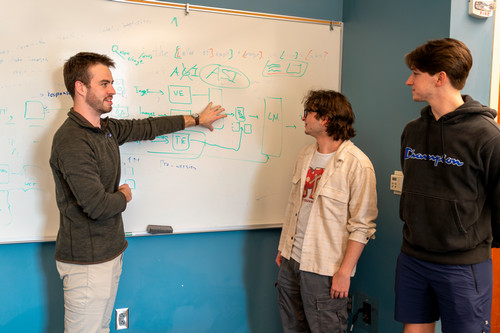
Strength, mentored by CSSE Assistant Professor Pan He, created a realistic traffic simulation environment via artificial intelligence (AI) models in hopes of improving urban traffic management.
“The idea is to move beyond traditional traffic lights with fixed timing or pressure sensors and use cameras plus AI to make smarter, more adaptive traffic control systems,” he said. “To make this possible, I’m building a simulation that turns 2D satellite data into a detailed 3D model of urban traffic, including intersections, vehicle dynamics and traffic signals.”
This setup allows for the testing/training of advanced AI systems under real-world traffic scenarios, helping to reduce congestion and emissions.
“It’s all about bridging the gap between how AI is tested and how it would work in actual cities,” Strength said.
Bolton, mentored by CSSE Associate Professor and Faculty Achievement Fellow Anh Nguyen, is studying why modern AI chatbots, such as ChatGPT, are surprisingly bad at simple visual tasks that are trivial for humans, but can analyze complex scientific diagrams with perfect accuracy.
His co-authored paper, “Vision language models are blind,” has been covered in news articles via Tech Crunch and Ars Technica, and cited by researchers from Microsoft, Google, Adobe, Stanford, Yale and more.
“Doing AI research at Auburn has been one of my favorite parts of undergrad,” Bolton said. “Coming into research, I thought that no one would care about my opinions and that I would be doing a lot of brute force intern type work that no one wants to do. That really was not the case. Dr. Nguyen and the PhD students I work with have been fantastic collaborators and mentors who value my discussions about research. Working in a lab while being a full-time student has been very challenging, but it has come with the benefit of significant amounts of personal growth.”
Robinson, mentored by CSSE Associate Professor Farah Kandah, co-authored the paper, “Unmasking of IOT Devices: A Dynamic and Adaptive Classification Approach,” which was recently accepted for publication in the IEEE International Conference on Communication June 8-12 in Montreal.
"The Internet of Things brings a brand-new world of convenience to consumers, but also introduces a plethora of new security concerns, particularly involving the leakage of user personally identifiable information," he said. "For the past several months, our goal has been to bring light to these concerns through network traffic analysis. Whether on encrypted or unencrypted traffic, this can not only show what type of device the traffic originates from (Alexa, Ring doorbell, etc.), but possibly even what the user is doing on that device."
"Since completing the paper on device identification and classification, our current goal is to switch perspectives and investigate what we can do to mitigate these sorts of analytical attacks — preventing network traffic analysis from the source. It excites me that we get to work directly at the cutting edge of consumer privacy and actively move towards a more secure future."
Narayaran added that research doesn't belong exclusively to graduate students.
"Research is a vital component of the educational process, offering students at all levels the opportunity to develop critical thinking, problem-solving skills and a deeper understanding of computer science,” Narayanan said. “Engaging in research as undergraduates prepares students for future academic and professional endeavors, encouraging a lifelong passion for discovery and learning.”
Media Contact: , jem0040@auburn.edu, 334.844.3447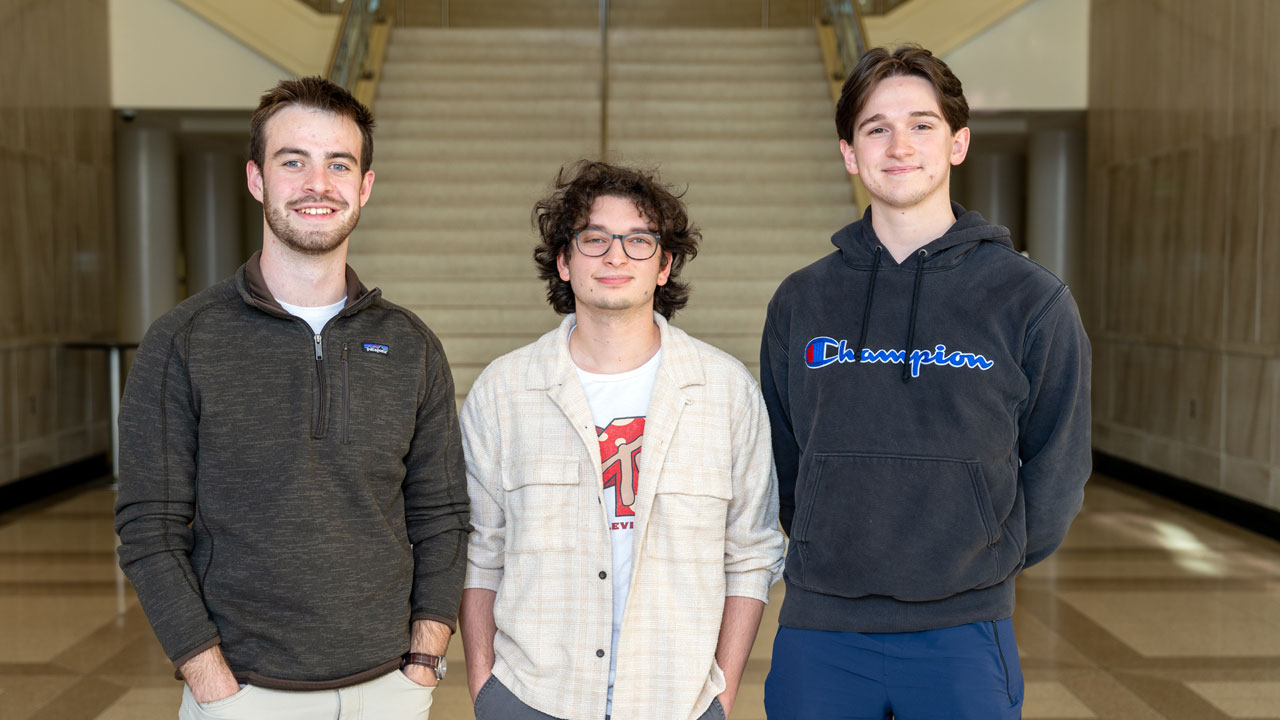
From left, Logan Bolton, Owen Strength and Luke Robinson.


